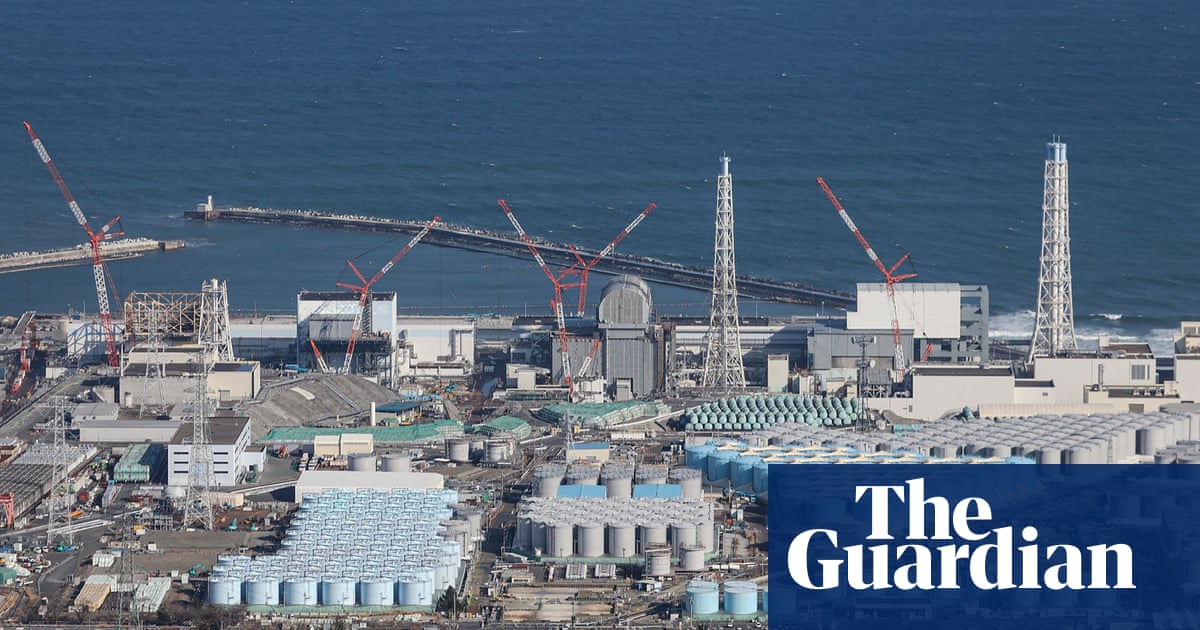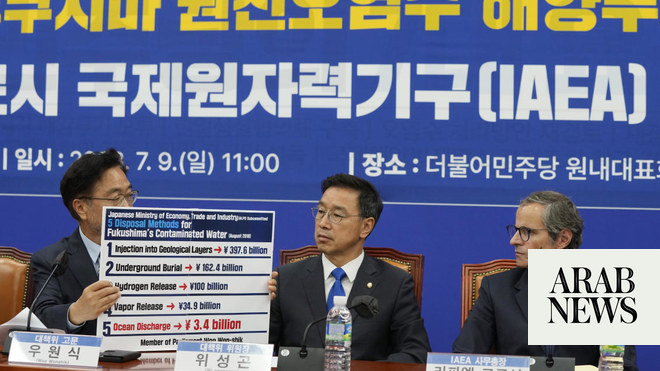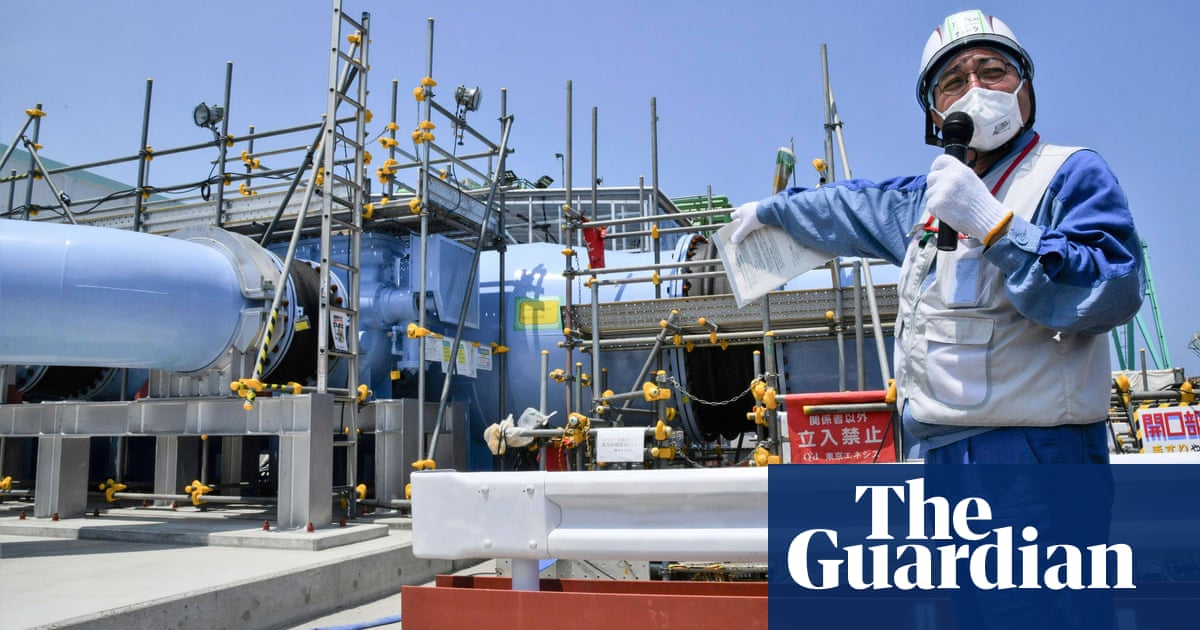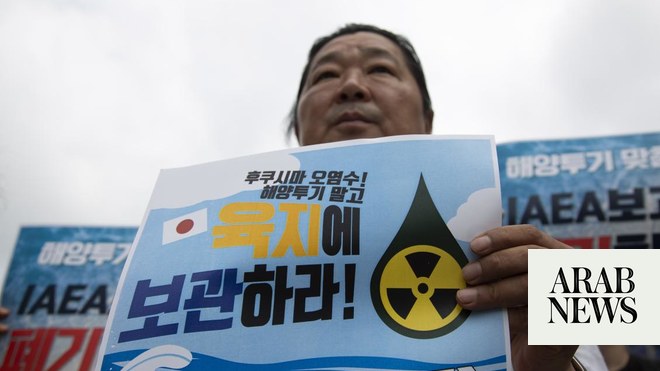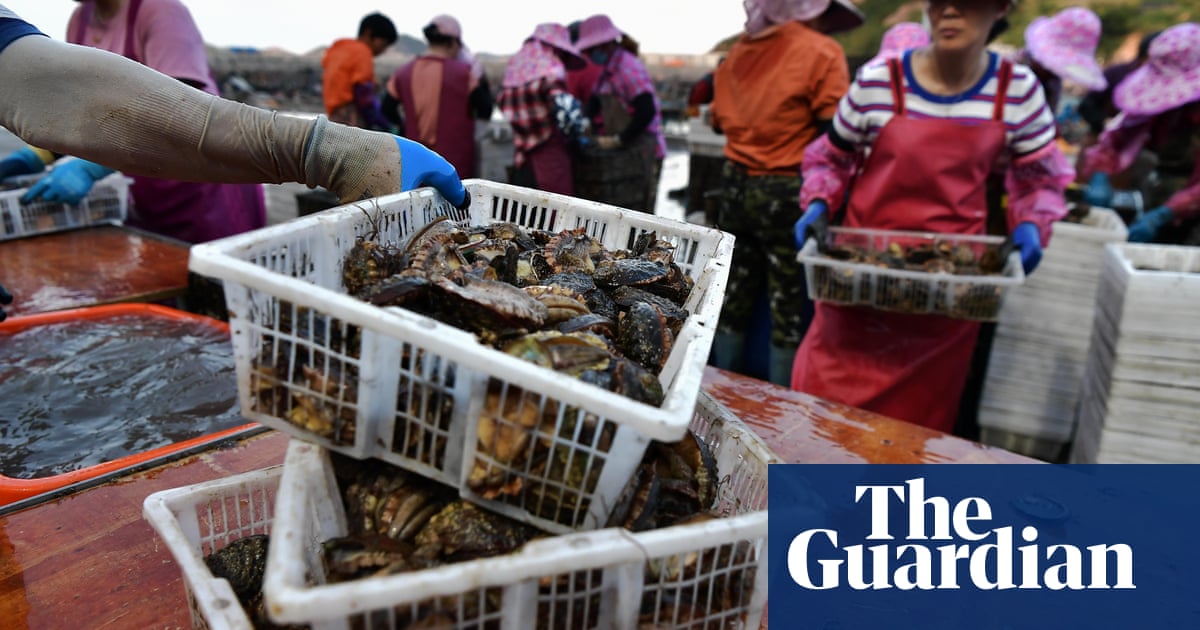
As China bans all seafood from Japan after the discharge of 1m tonnes of radioactive water from the ruined Fukushima Daiichi nuclear power plant into the Pacific Ocean, Beijing has been accused of hypocrisy and of using the incident to whip up anti-Japanese sentiment.
Scientists have pointed out that China’s own nuclear power plants release wastewater with higher levels of tritium than that found in Fukushima’s discharge, and that the levels are all within boundaries not considered to be harmful to human health.
On Thursday, Tokyo Electric Power (Tepco), the company that manages the plant, began pumping water containing radioactive tritium into the sea, starting a wastewater discharge process that is expected to take at least 30 years. The plan has been approved by the UN’s atomic watchdog, the International Atomic Energy Agency (IAEA) and the Japanese government.
On Friday, Tepco said rapid tests of samples taken from the first batch of released wastewater showed radioactivity levels well within safe limits.
“We confirmed that the analysed value is equal to the calculated concentration and that the analysed value is below 1,500 becquerels per litre,” a Tepco spokesperson, Keisuke Matsuo, told reporters. The national safety standard is 60,000 becquerels a litre.
“We will continue to conduct analysis every day over the next one month and even after that, maintain our analysis effort,” Matsuo added.
“By providing swift, easy to understand explanations we hope to dispel various concerns.”
China has condemned the discharge, with the customs agency saying it risks the “radioactive contamination of food safety”. China’s foreign ministry said it was an “extremely selfish and irresponsible act”.
Japan’s prime minister, Fumio Kishida, said his government had used diplomatic channels to request that China’s ban on Japanese seafood be lifted. “We strongly encourage discussion among experts based on scientific grounds,” Kishida told reporters, according to the Kyodo news agency.
China’s Fuqing power plant in Fujian province releases about three times more tritium into the Pacific than the planned Fukushima discharge. Beijing appears to be basing its distinction on Japan’s discharge having originated from a nuclear disaster.
“There is a fundamental difference between the nuclear-contaminated water that came into direct contact with the melted reactor cores in the Fukushima nuclear disaster and the water released by nuclear power plants in normal operation,” China’s foreign ministry spokesperson, Wang Wenbin, said on Wednesday. “They are different in nature, come from different sources and require different levels of sophistication to handle.”
Authorities in Hong Kong also claimed the situation was “completely different” when asked about its ban on Japanese seafood, saying other radioactive substances could also be present.
The Kori nuclear power plant in Busan in South Korea releases a similar amount to Fuqing. South Korea has also criticised the Fukushima decision, but its government recently said it accepted the IAEA’s safety report approving the plan.
Many scientists agree with the IAEA that the release will have a “negligible” radiological impact on people and the environment.
Dr David Krofcheck, a senior lecturer at the University of Auckland, said: “The release of currently filtered cooling water containing tritium atoms from the Fukushima plant will not cause physically detrimental effects. Tritium is produced naturally as part of our normal environmental background radiation, and it travels via rain or rivers into the world’s oceans.
“The water release is designed to have seven times less tritium per litre than is recommended for drinking water by the World Health Organization. Much more tritium has been released by normally operating nuclear power plants into the north Pacific Ocean since those plants in China, South Korea, and Taiwan, were first located on coastal sites.”
Greenpeace has said the radiological risks from Fukushima have not been fully assessed, and the biological impacts of tritium, carbon-14, strontium-90 and iodine-129 – to be released with the water – “have been ignored”.
Tepco and Japan’s government have said the filtering process will remove strontium-90 and iodine-129, while the concentration of carbon-14 in the contaminated water is far lower than its regulatory standard for discharge.
The Japan-based Citizens’ Nuclear Information Centre is among critics who have said not enough is known about the long-term effects of pumping tritium into the sea. “Tepco, the [Japanese] government, and the IAEA have all failed to properly consider and evaluate the environmental contamination caused by the long-term release of radioactive materials and the behaviour of radioactive materials in the environment,” it said in a statement.
Chinese fishmongers are now fretting about empty shelves as they are unable to restock Japanese imports, which were previously considered to be of a higher quality than seafood from other countries.
There has been a run on salt in some Chinese supermarkets, just as there was in the wake of the 2011 Fukushima disaster, because of baseless rumours that the iodine in salt can prevent radiation poisoning.
On Thursday, the China National Salt Industry Corporation, the state-owned salt monopoly, published a statement addressing the “panic buying” of salt and reassuring consumers that its salt was not tainted by Japanese nuclear pollution.
The spat has also whipped up nationalist sentiments. In one poll posted on Weibo this week, people were asked how they felt about the discharge. The three options given were: “It violates international conventions and international marine protection laws”, “It is abnormal behaviour that does not conform to common sense” and “It seriously damages the ecological environment”.
In the early hours of Friday morning, six of the top 10 trending topics were about Japan and Fukushima, with one topic calling for Mount Fuji to erupt. On Weibo Chinese users have begun sharing lists of Japanese cosmetics, urging people to boycott them over radiation fears.
On Thursday, China’s ministry of foreign affairs was asked why it was banning only seafood imports from Japan, given their stated scientific concerns about water contamination should also apply to the seas around Russia and South Korea. Wang did not answer, instead repeating accusations that Japan had “turned itself into a saboteur of the ecological system and polluter of the ocean”.
Additional reporting by Helen Davidson and Justin McCurry
Additional research by Chi Hui Lin






